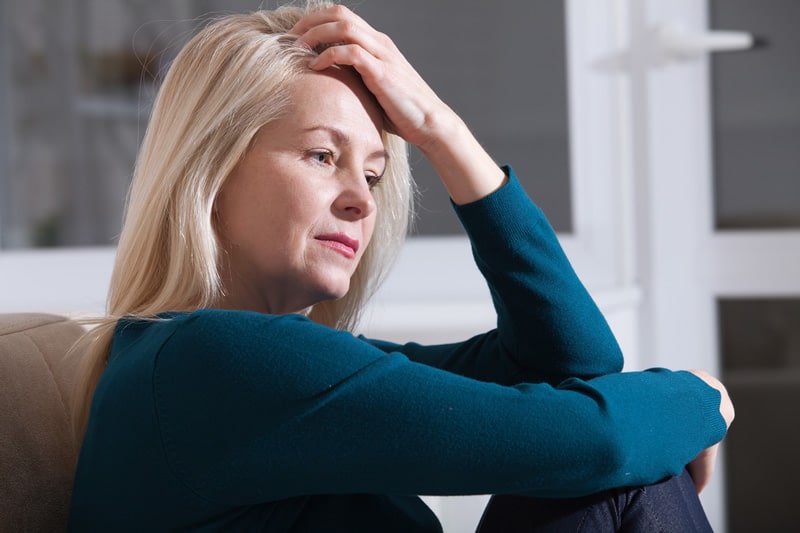Perhaps you (or someone you know) has been feeling “on edge” and unsettled lately. It may have started gradually or become noticeable all of a sudden. Perhaps these feelings started after an unforeseen or upsetting incident. You may be wondering: is this anxiety? Are these emotions temporary or situational? Will these feelings linger or go away on their own?
This article presents answers to some common questions about anxiety, and information on different types of helpful treatments and resources. This may be useful for those interested in learning more about anxiety and those exploring possible treatment options on their journey to feeling better.
Characteristics of anxiety
Humans have a built-in survival system to help us take care of ourselves by preparing for or responding to a threat. A threat is anything real or perceived that we consider a danger to our well-being. So some amount of worry and anxiety can help us keep ourselves safe. However, anxiety is considered problematic when it starts to become overwhelming and interferes with life functions such as sleeping, working, social activities/relationships, concentrating or eating. Source: https://www.ncbi.nlm.nih.gov/pmc/articles/PMC3181681/
Anxiety is very common. The 2014 Survey on Living with Chronic Diseases in Canada reported that an estimated 3 million Canadians (11.6%) aged 18 years or older reported that they had a mood and/or anxiety disorder. (Source: https://www.canada.ca/en/public-health/services/publications/diseases-conditions/mood-anxiety-disorders-canada.html .)
Anxiety differs from anticipation (butterflies before a job interview or nervousness prior to public speaking) because it often lasts much longer and is not tied to one specific event. Anxiety is distinct from minor worries because it can be ongoing, it often involves physical symptoms (such as shortness of breath), and seems very real because it may trigger vivid mental images. (Source: https://www.psychologytoday.com/ca/blog/the-squeaky-wheel/201603/10-crucial-differences-between-worry-and-anxiety .)
Anxiety is often accompanied by other symptoms or challenges
It is quite common for people to experience both anxiety and depression. Anxiety sometimes may also accompany substance abuse, which may be considered “self-medicating”.
One challenge that can compound the effects of anxiety is insomnia. Persistent and intense worries can keep a person from having a proper rest. Then, when someone is tired, they may have more difficulty summoning the emotional and mental resources for dealing with daily challenges. This may lead to more anxiety. This is one reason that many treatments for anxiety include methods for helping an anxious individual to calm down.
There are also many different types of anxiety, including: generalized anxiety disorder, social anxiety disorder/social phobia, panic, phobias, post-traumatic stress disorder (PTSD) and obsessive-compulsive disorder (OCD). A specific diagnosis of one of these types of anxiety from a medical professional can help direct the specific course of treatment.
Helpful treatments and resources are available for anxiety
There are a number of effective approaches to help manage anxiety. Here are a few common approaches. The treatment of anxiety is highly individual and dynamic, so many choose a variety of techniques as they search for what works best for them.
Cognitive Behavior Therapy (CBT) is considered the most effective type of talk therapy/counselling for anxiety, and also helps with depression. This goal-oriented therapy helps participants understand how feelings, thoughts and behaviors are related. By altering our behavior, participants can foster changes in thoughts and, ultimately, their feelings and mood can improve as a result. Find out more about CBT here: https://www.jerichocounselling.com/counselling-services/cognitive-behavioural-therapy/
Medical support involves care from a family doctor. A physician can recommend treatments and approaches to anxiety that take the patient’s medical history and current physical health into account as well. For some, controlling anxiety may require temporary or long-term supervised use of prescription medication.
Mindfulness can be helpful because some individuals living with anxiety may also face guilt, shame or stigma related to anxiety itself. Mindfulness helps develop a less judgmental awareness of one’s feelings. Being compassionate towards oneself is a big step towards feeling less anxious. Mindfulness practices may also be effectively combined with CBT.
Self-Care is an umbrella term for self-initiated activities that invite calm and positive mental health, as well as provide a healthy distraction. These may include physical exercise, which is proven to help with anxiety. Also noteworthy is meditation, which can help soothe an anxious mind. Other types of self-care may include gardening, massage, listening to favorite music, doing puzzles, writing in a journal or playing games. In addition, many facing anxiety may benefit greatly from seeking assistance and companionship from friends, family members, spiritual leaders, community help-lines and other trusted people in their lives.
Support Groups may also be very helpful to those dealing with anxiety. Connecting with other individuals who have similar struggles, in a safe and confidential environment, can foster feelings of relief and encouragement. Support groups are also a place to learn healthy methods for coping. They are often a relatively inexpensive form of therapy as well. Find out more about Jericho Counselling’s support groups for anxiety here: https://www.jerichocounselling.com/workshops/anxiety-101/
Next Steps
If you are struggling to determine why you aren’t feeling well, it is valuable to seek the help of others, regardless if the problem is anxiety or not. Wondering whether or not your challenge is specifically anxiety can potentially lead to more unsettling feelings. Perhaps the question is less about whether or not you are anxious, and more about how you can engage others for help to feel better. Participating in healthy self-care and activities and seeking medical and therapeutic/counselling assistance can help to focus your energy in a positive direction and find answers about the best courses of treatment.
Note: this blog posting is not a diagnostic tool.
The following blog postings have been helpful for many of our clients and may be of interest to you, too. Please note that they do not replace professional support and assistance. If you find yourself in crisis, please reach out to support resources in your community.



Comments are closed.